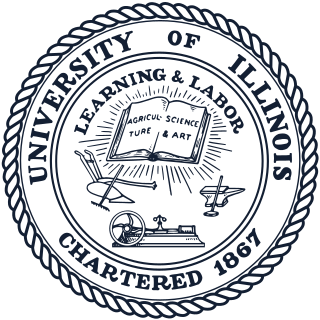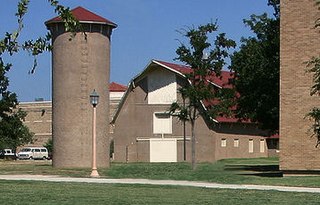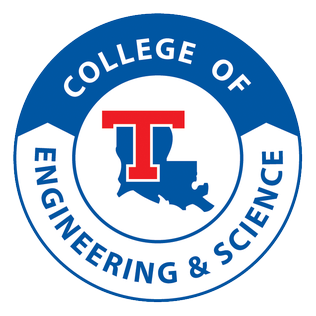
Louisiana Tech University is a public research university in Ruston, Louisiana. It is part of the University of Louisiana System and classified among "R2: Doctoral Universities – High research activity".

The University of Illinois System is a system of public universities in the U.S. state of Illinois consisting of three universities: Chicago, Springfield, and Urbana-Champaign. Across its three universities, the University of Illinois System enrolls more than 94,000 students. It had an operating budget of $7.18 billion in 2021.
Science education is the teaching and learning of science to school children, college students, or adults within the general public. The field of science education includes work in science content, science process, some social science, and some teaching pedagogy. The standards for science education provide expectations for the development of understanding for students through the entire course of their K-12 education and beyond. The traditional subjects included in the standards are physical, life, earth, space, and human sciences.
The Doctor of Education is a research or professional doctoral degree that focuses on the field of education. It prepares the holder for academic, research, administrative, clinical, or professional positions in educational, civil, private organizations, or public institutions. Considerable differences exist in structure, content and aims between regions. In the US, for instance, the EdD usually is a professional doctorate for working or learning professionals and has a large taught component with a smaller thesis, comparable to for example a DSW or DPH, whereas in the UK and Canada, the Ed.D. is a full research doctorate with research and profession related courses but ultimately awarded for the thesis resulting from original research, that way aligning more with a Ph.D.

Teachers College, Columbia University (TC) is the graduate school of education of Columbia University, a private research university in New York City. Founded in 1887, Teachers College has served as one of the official Faculties and the Department of Education of Columbia University since 1898. It is the oldest and largest graduate school of education in the United States.

Agricultural education is the systematic and organized teaching, instruction and training available to students, farmers or individuals interested in the science, business and technology of agriculture as well as the management of land, environment and natural resources.
The UC Davis School of Education is one of 10 schools and colleges at the University of California, Davis. It offers a wide range of academic and professional development programs.

The College of Education is the undergraduate and graduate education school of the University of Illinois Urbana-Champaign. It was founded in 1905 and took on its current name in 1918 after previously being known as the School of Education. The college offers undergraduate, graduate, and online programs in areas including elementary education, early childhood education, special education, and Educational Organization and Leadership. It began with six departments; three of them merged and formed the largest department in the college. All departments offer masters and doctoral degrees. However, only two departments offer undergraduate degree programs: Special Education and Curriculum & Instruction. The college also offers 16 online programs. Students seeking an undergraduate degree in the college must meet the minimum graduation requirement set forth by the university. To obtain a certification, students must also meet the requirements of the Council on Teacher Education, a professional educational administration at the University of Illinois. The total enrollment is 1,361 students as of 2015.

The Iligan Institute of Technology, commonly referred to as, is a public coeducational institution of higher learning and research university located in Iligan City, Philippines, charted in 1968 by Republic Act 5363 and integrated as the first autonomous unit of the Mindanao State University System in 1975.

The University of Wisconsin–Madison School of Education is a school within the University of Wisconsin–Madison. Although teacher education was offered at the university's founding in 1848, the School was officially started in 1930 and today is composed of 10 academic departments. U.S. News & World Report in its 2023 Best Grad School rankings rated UW-Madison's School of Education No. 5 among public institutions. In addition, U.S. News ranked nine education specialty areas, and UW–Madison’s School of Education is the only school in the nation to have a top-10 ranking in all nine — including the No. 1-ranked Educational Psychology program. Diana Hess succeeded Julie Underwood as the school's ninth dean in August 2015.
In the United States and Canada, a school of education is a division within a university that is devoted to scholarship in the field of education, which is an interdisciplinary branch of the social sciences encompassing sociology, psychology, linguistics, economics, political science, public policy, history, and others, all applied to the topic of elementary, secondary, and post-secondary education. The U.S. has 1,206 schools, colleges and departments of education and they exist in 78 per cent of all universities and colleges. According to the National Center for Education Statistics, 176,572 individuals were conferred master's degrees in education by degree-granting institutions in the United States in 2006–2007. The number of master's degrees conferred has grown immensely since the 1990s and accounts for one of the discipline areas that awards the highest number of master's degrees in the United States.
Texas Tech University College of Education is a college at Texas Tech University in Lubbock, Texas. The education program has existed at Texas Tech University since 1925. The college is accredited by the National Council for Accreditation of Teacher Education.

The University of Florida College of Education is the teacher's college, or normal school, of the University of Florida. The College of Education is located on the eastern portion of the university's Gainesville, Florida, campus in Norman Hall, and offers specializations in special education, higher education, educational policy, elementary education, counseling, teaching, and other educational programs. It is consistently ranked one of the top schools of education in the nation. The college was officially founded in 1906. In fiscal year 2020, the College of Education generated $102.8 million in research funding.

American College of Education (ACE) is a private for-profit online college based in Indianapolis, Indiana, focused on education, healthcare, nursing, and business. American College of Education is a certified B Corporation and a subsidiary of ACE Holdco PBC of Dallas, Texas.

The College of Engineering and Science (COES) is one of five colleges at Louisiana Tech University, a public research university in Ruston, Louisiana. The roots of the college date back to the founding of Louisiana Tech in 1894 when the Department of Mechanics was created. Today, the college includes twenty-five degree-granting programs: fourteen undergraduate, seven master's, and four doctoral programs. College programs are located on the Louisiana Tech campus in Ruston, Louisiana. In addition, courses are offered at the CenturyLink Headquarters in Monroe, Louisiana, at Barksdale Air Force Base, in Bossier City, Louisiana, and at the Louisiana Tech Shreveport Center in Shreveport, Louisiana.

The History of Louisiana Tech University began when the Industrial Institute and College of Louisiana was founded in Ruston, Louisiana in 1894. The institute was founded to develop an industrial economy in the state of Louisiana. Four years later, the school was renamed the Louisiana Industrial Institute when Louisiana adopted the Constitution of 1898. When the Constitution of 1921 was passed, the school changed its name again to Louisiana Polytechnic Institute to reflect the school's evolution from a trade school into a larger and broader technical institute. Although the university was informally called Louisiana Tech for about five decades after the 1921 name change, it was not until 1970 when Louisiana Polytechnic Institute officially changed its name to Louisiana Tech University. Over the course of its history, the school grew from a small industrial institute with one building to a university with five colleges and an enrollment of around 11,800 students.
The College of Science at Virginia Tech contains academic programs in eight departments: biology, chemistry, economics, geosciences, mathematics, physics, psychology, and statistics, as well as programs in the School of Neuroscience, the Academy of Integrated Science, and founded in 2020, an Academy of Data Science. For the 2018-209 academic year, the College of Science consisted of 419 faculty members, and 4,305 students, and 600 graduate students The college was established in July 2003 after university restructuring split the College of Arts and Sciences, established in 1963, into two distinct colleges. Lay Nam Chang served as founding dean of the College of Science from 2003 until 2016. In 2016, Sally C. Morton was named dean of the College of Science. Morton served in that role until January 2021, when she departed for Arizona State University and Ronald D. Fricker—senior associate dean and professor in the Department of Statistics—was named interim dean of the College. In February 2022, Kevin T. Pitts was named the named the third official dean of the College of Science.
The College of Liberal Arts and Human Sciences at Virginia Tech comprises two schools, 12 departments, and three ROTC programs. The college also has connections to research facilities and local community service organizations through which students can earn experience in major related fields and has many study abroad programs. In 2010–11, the college had 4,386 students taking courses on the Blacksburg campus. The college's dean, Rosemary Blieszner, was appointed in 2017.
The College of Natural Resources and Environment at Virginia Tech contains academic programs in forestry, fisheries, wildlife sciences, geography, and wood science. The college contains four departments as well as a graduate program in the National Capital Region and a leadership institute for undergraduates.
The University of Connecticut (UConn) Neag School of Education offers undergraduate and graduate degrees in education, sport management, and leadership across four campuses, with the main campus located in Storrs, Connecticut. The Storrs location is the main UConn campus and is home to the Renzulli Center for Gifted Education and Talent Development, and additional locations are in Hartford, Waterbury, and Groton. It is ranked number 16 among public graduate schools of education in the nation. The schools' research and teaching programs have been funded by a wide number of institutions, such as the National Science Foundation and the Department of Education.












